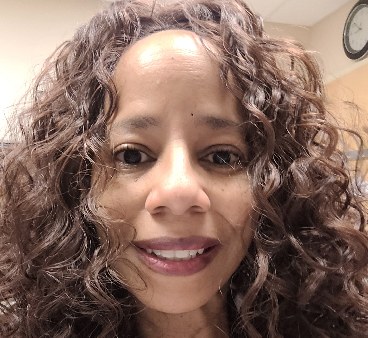Editor’s note: The following column by Society for Participatory Medicine board member Brenda Merriweather originally appeared in this space in December 2021. We are excerpting from that column in recognition of “Advancing Health Equity Through Participatory Medicine,” a special SPM event taking place in Portland, OR, Friday, June 16. Click here to register for the event, which is offered in-person or remote. Visit https://www.eventbrite.com/e/advancing-health-equity-through-participatory-medicine-tickets-594076888967 for tickets and information.
In 2004, as a staff nurse at Baptist Medical Center South in Florida, I cared for a group of pediatric and adult African-American Sickle Cell patients who would come to my medical-oncology unit for treatment. They would stay a few days, get fluids, and get Phenergan around the clock for nausea, and narcotics for pain. Most were in excruciating pain and have low blood counts. Eventually they would leave the unit, then come back a few weeks or months later. Sometimes, they would be back within days.
I always felt like I was putting a Band-Aid on their care and not really doing anything tangible for them. Five years later, I developed a questionnaire for Sickle Cell patients in hopes of improving their pain management.
“Care Advisor,” a hospital readmission reductions program, had two nurses for their congestive heart failure program and were looking for a nurse to coordinate a program for Sickle Cell patients. Not having a focused Sickle Cell program coordinator led to a high hospital readmission rate, increased length of stay, fragmentation of medical and social services, suboptimal pain management, noncompliance by patients, emergency department misuse, inadequate follow-up with primary care and poor transition from pediatric to adult care. Because I had developed the pain questionnaire, administration asked me to be the Sickle Cell Coordinator for Care Advisor.
Initially, administration wanted me to case manage the patients by telephone. I refused because I knew that case managing this population by telephone not only would be unsuccessful, but wouldn’t do justice to this population. I mapped out a Sickle Cell Disease Treatment/Case management model on paper that I thought would work. It is known as the PAST Model, or Proactive and Aggressive Sickle Cell Disease Treatment Model. The model is evidence-based. I told administration that I needed to closely follow up with patients, case manage them and round on them in the Emergency Department, intensive care units and other inpatient units. I also needed to review the patient inpatient orders and make suggestions on the orders. A year after the implementation of the PAST Model, readmissions had dropped dramatically and hospital length of stay improved.
I introduced standard of care, taught Sickle Cell patients about self-care, and educated physicians, nurses and ancillary staff about Sickle Cell Disease and its management. After a while, I saw negative attitudes towards patients change; they were seen more as human beings. Sickle Cell patients were no longer called “sicklers,” “frequent flyers” and, more pointedly, “drug seekers.” Sickle Cell patients reported fewer complaints of not being treated fairly in the ED and on the inpatient units. More Sickle Cell patients received care according to NHLBI guidelines. From this experience, I learned that you do not have to have grant money to complete a Sickle Cell program. If you educate patients on self-care, educate providers on Sickle Cell care, have effective communication between patients and providers, institute orders based on the current NHLBI guidelines, then hospital readmissions will automatically come down.
Brenda Merriweather was the Sickle Cell Program Coordinator at Baptist Health System in Montgomery, Alabama where she developed and Implemented the Proactive and Aggressive Sickle Cell Disease Treatment Model. In 2016, she was awarded the Dr. Martin Luther King Jr. Award for Vanderbilt University Medical Center. Merriweather is currently working at Children’s National Hospital in Washington D.C. as a Clinical Program Coordinator in Hematology for an Integrative Pain Clinic for Sickle Cell patients.







Hello, is there a video recording available for the ‘Advancing Health Equity Through Participatory Medicine’ event held on June 16, 2023? Thanks!